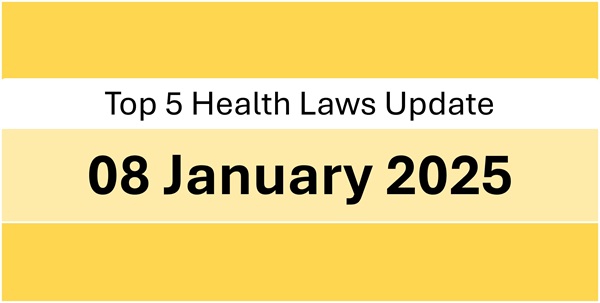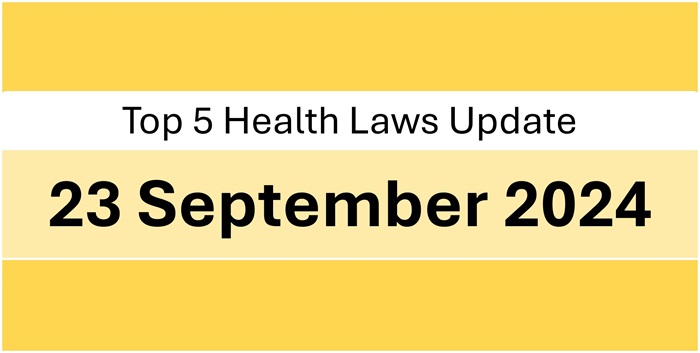Dear Readers, we are happy to share the most interesting legal and policy updates concerning health industry that we read today. we hope you enjoy reading it.
1. The Food Safety and Standards Authority of India (FSSAI), in its 45th meeting, decided that the amendment to the Food Safety and Standards (Labelling and Display) Regulations, 2020, will be enforceable from 1st July 2025. This is subject to the condition that at least 180 days have passed from the date of notification of the amendment. Additionally, in cases of emergency, a separate decision may be taken regarding enforcement.
Source: bit.ly/3BPK9jH
2. The Supreme Court of India recently ruled that while courts have the authority to order the seizure of vehicles pending trial under the Narcotic Drugs and Psychotropic Substances Act, 1985 (NDPS Act), there is no provision in the Act that prohibits the return of seized vehicles. The Court emphasized that owners of such vehicles should be given an opportunity to be heard regarding the restoration of possession, particularly if they had no knowledge of the transport of narcotic or psychotropic substances,
Source: bit.ly/3DNibWg
3. The Rajasthan High Court, in a matter seeking to quash a petition against pathologists at a hospital accused of falsifying reports based on signature irregularities, held that cases of medical negligence must be subjected to a higher degree of scrutiny. The court further stated that mere irregularities in documents do not constitute falsification.
Source: bit.ly/3C2O64y
4. India’s Directorate General of Foreign Trade (DGFT) has issued a public notice regarding procedure for exporting certified organic products from the country. The new procedure requires that all ‘organic products’ intended for export should carry a Transaction Certificate issued by a National Accredited Body under the National Program for Organic Production (NPOP) and should be labelled in accordance with the NPOP. A revised NPOP will come into force from 5th July 2025
Source: bit.ly/4j48uD1
5. The US Food and Drug Administration has issued a finalized guidelines under the Advanced Manufacturing Technologies Designation Program, whereby manufacturers are able to obtain designation of the manufacturing process which may either reduce development time of drug or maintain supply of life-supporting, life-sustaining or critical drug.
Source: bit.ly/4j3H3Jr


